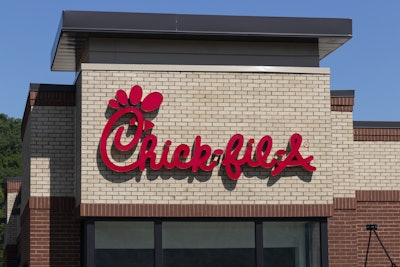
Chick-fil-A will switch its antibiotic use policy from no antibiotics ever (NAE) to no antibiotics important to human medicine (NAIHM) in the spring of 2024.
The quick service restaurant (QSR) chain said the change is "to maintain supply of the high-quality chicken you expect from us,” according to a statement on its website.
The NAIHM standard, recognized by both the USDA and the World Health Organization (WOAH), allows for the use of antibiotics that are not crucial to the treatment of human diseases. Ionophores and coccidiostats are allowed in NAIHM programs.
The policy change is “due to challenges it foresees in finding chicken supplies that ‘meets our rigid standards,’” Chick-fil-A told Reuters.
The QSR originally shifted to NAE chicken in 2014, completing the transition in 2019.
“We know consumers care about how their food is made and where it comes from, including the use of antibiotics. Because it was important to our customers, it was important to us,” Matt Abercrombie, director, menu and packaging, said in a 2019 statement.
Chick-fil-A did not respond to a WATTPoultry.com request for comment.
Tyson moves away from NAE
Chicken producer Tyson Foods announced a change to NAIHM from NAE production in July 2023 based on “sound science and an evolving understanding of the best practices impacting our customers, consumers and the animals in our care.”
“While roughly half of the industry uses some form of antibiotic in producing chicken, NAIHM is a heightened standard that has been recognized by the USDA for decades and qualified through program documentation showing no antibiotics important to human health have been used,” the company stated.
“This transition continues to support our approach to responsible stewardship and the decision was made with the best interest of people and animals in mind.”


















